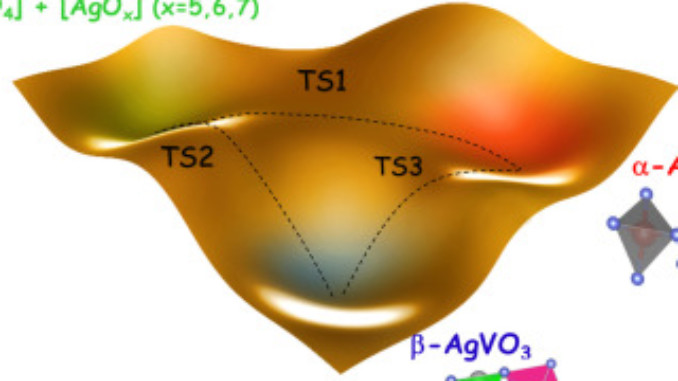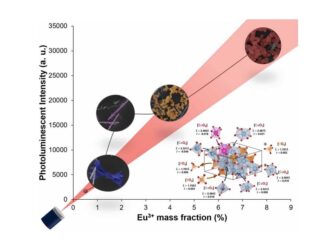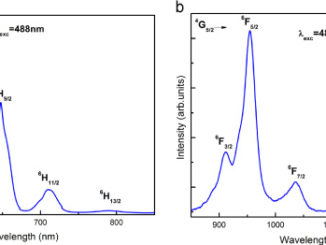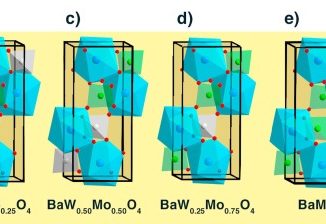
α- and β-AgVO3 polymorphs as photoluminescent materials: An example of temperature-driven synthesis
Abstract: Controlling the synthesis of a given polymorph of an inorganic material is a further step in the design of property and function. In this letter, we report for the first time a simple procedure to effectively control the reversible transformation between the crystalline polymorphs α-AgVO3 and β-AgVO3. Photoluminescence emission (PL) performance is analyzed; at low temperatures (up to 35 °C) when α-AgVO3 is formed the PL emission is red, while at temperatures larger than 45 °C when β-AgVO3 is obtained the color of emission PL emission goes from green to blue. The findings highlight the ability of temperature to dramatically alter the nature of phase transformation at the atomic level. The phase transformation is driven by the short-range structural and electronic changes of [VO4] and [AgOx] (x = 5, 6, and 7) clusters (building blocks of both monoclinic structures), and hence is dependent on the temperature employed during synthesis. These outcomes clearly demonstrate that the AgVO3 crystals exhibited appropriate activity for application in visible lamps, displays, and other optical devices.
Authors: Regiane Cristina Oliveira, Mayara Mondego Teixeira, João Paulo C. Costa, Maya Penha, Eric Mark Francisco, Jussara Soares da Silva, Máximo Siu Li, Elson Longo, Lourdes Gracia & Juan Andrés.
Ceramics International
Volume 44, Issue 6, 15 April 2018, Pages 5939-5944
DOI: https://doi.org/10.1016/j.ceramint.2017.12.161




